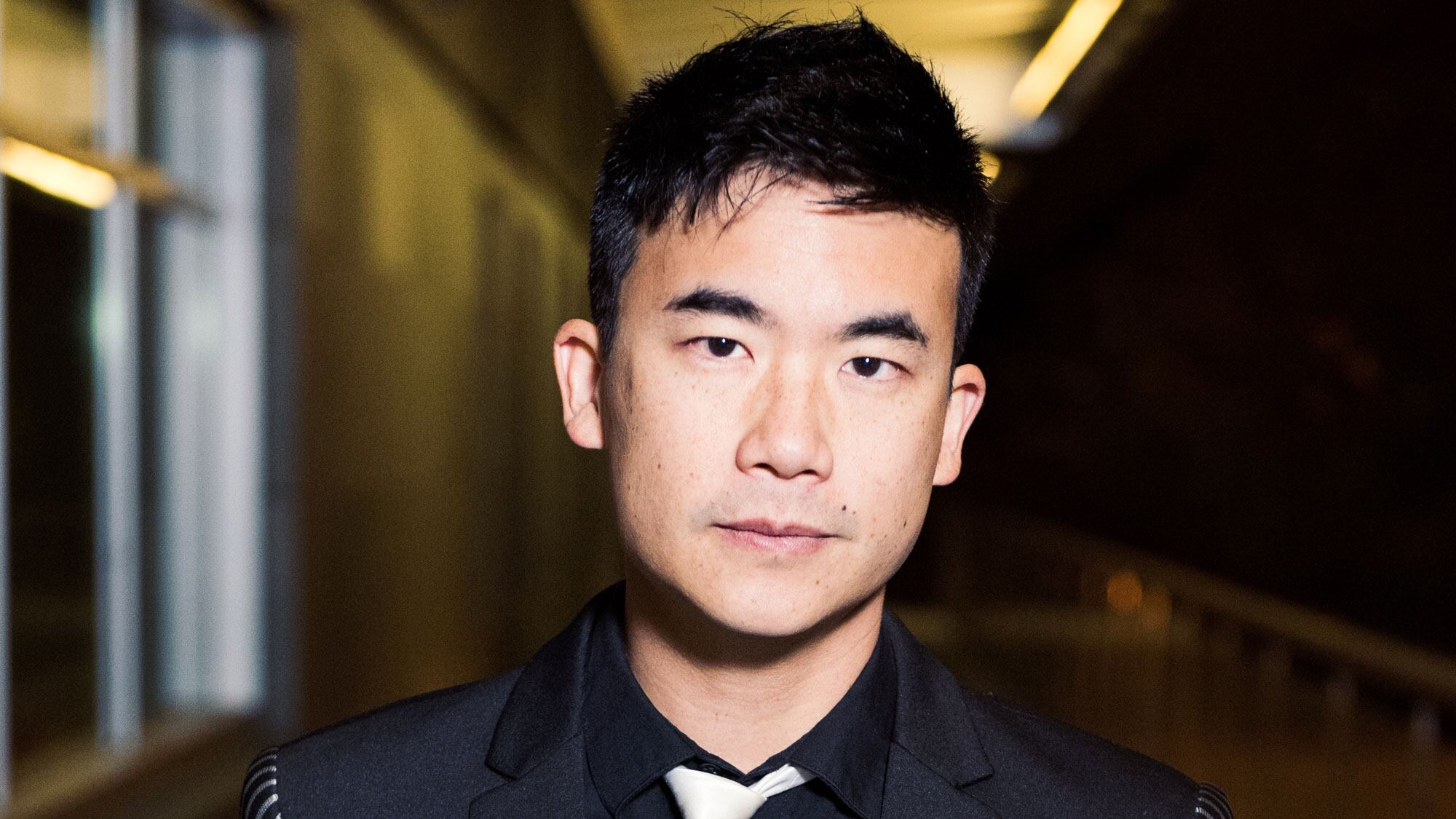The Slants are dead. Long live the Slants.
The long-running, Portland-born "Chinatown dance rock" band has been together since 2006, but for most of the past decade, they've been best known for their legal fight against the U.S. Patent and Trademark Office, which did not appreciate or understand the irony and power of an Asian American band deciding to reclaim a racial slur. Simon Tam, the band's founder and bassist, took his argument all the way to the U.S. Supreme Court, successfully overturning an inconsistently applied federal law against "scandalous, disparaging or immoral trademarks" on First Amendment grounds by a unanimous 8-0 decision.
Related: Portland Band the Slants Wins Landmark Supreme Court Victory.
It's a journey Tam has now documented in a self-published memoir, Slanted: How an Asian American Troublemaker Took on the Supreme Court (Troublemaker Press, 326 pages, $26.99), which is also a detailed and affecting story about growing up the child of immigrants and coming of age as an indie-rocker.
These days, Tam is as likely to appear at bar association conventions, universities or TED Talks as at grimy rock clubs, so perhaps it makes sense he's about to put the band behind him. On Nov. 4, at Doug Fir Lounge, the Slants will play what's being billed as the group's final live appearance—a show that will also function as the official launch of the Slants Foundation, a nonprofit Tam began last year devoted to Asian Americans looking to incorporate activism into art.
WW spoke to Tam—who now lives in Nashville—about looking back and moving on.
WW: It almost feels like, "Oh, they won their court case and now they're breaking up." But it's turned into something else.
Simon Tam: It's just changing. I've been doing this band for 13 years. That's a lot longer than most musicians stick with projects. I guess you could say I felt like I had to keep the band going because of the court case.
You come from the DIY tradition as a band. Did you always know you were going to self-publish the book?
We shopped it around for a while. I went through two book agents, and there were a lot of really great prospects, but we just couldn't see eye to eye on how to bring the vision forward. A number of publishers wanted me to remove a lot of the personal stories—they said it sounded "too Asian." Some of them wanted me to talk less about the music. And I'm like, "These things are very essential to my identity, and to the crux of the story!"

Why did you leave Portland?
I was super burnt out on Portland. I was serving on a whole lot of boards at the time and just feeling like I was losing focus. I wanted to move someplace to kind of get centered and figure out the things I actually wanted to do—in addition to moving someplace that was significantly more affordable. Nashville ended up being that place. I was able to sit down and really focus on writing and on developing the backbone and structure for the nonprofit.
You're appearing with Native American writer Jacqueline Keeler, creator of the #NotYourMascot campaign. When you first crossed paths on Twitter in 2015, you seemed at odds, because of the way your case became intertwined with the interests of a certain NFL team. How did you end up finding common ground?
A lot of it was realizing that Twitter is not a great vehicle for talking about things with nuance. We actually had a chance to sit down and talk, and she was wondering what my intentions were, what my experiences were. Once I was able to explain that, and what the legal proceedings were actually like, and how the law was actually functioning—or not functioning—I think that kind of planted a seed. We didn't walk away agreeing the first time, by any means, but after the Supreme Court decision, she was overwhelmingly supportive of what we did.
Now that the book's been out for a while, how do you look back on the whole trademark fight?
I still have mixed feelings about it. At the end of the day, I'm really proud of the fact I hung on and stuck with it. It still feels unreal to me when I get letters and notes from folks who found a lot of significance in the case. Someone recently asked me, if I knew what all would happen, would I do it again? And when I really thought about it, I probably wouldn't, knowing, hey, it's going to bankrupt you. It's going to cost you all your band members. When I started the Slants, I originally set out to just want to do music. But in hindsight, I'm really grateful I got to go through that and was able to learn and grow from the experience.
SEE IT: Simon Tam appears in conversation with Jacqueline Keeler at Powell's City of Books, 1005 W Burnside St., powells.com, on Sunday, Nov. 3. 2 pm. The Slants play Doug Fir Lounge, 830 E Burnside St., dougfirlounge.com, with Camp Crush and Shy Honey, on Monday, Nov. 4. 9 pm. $10. 21+.

